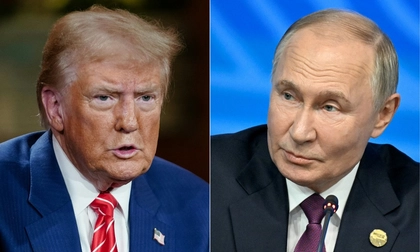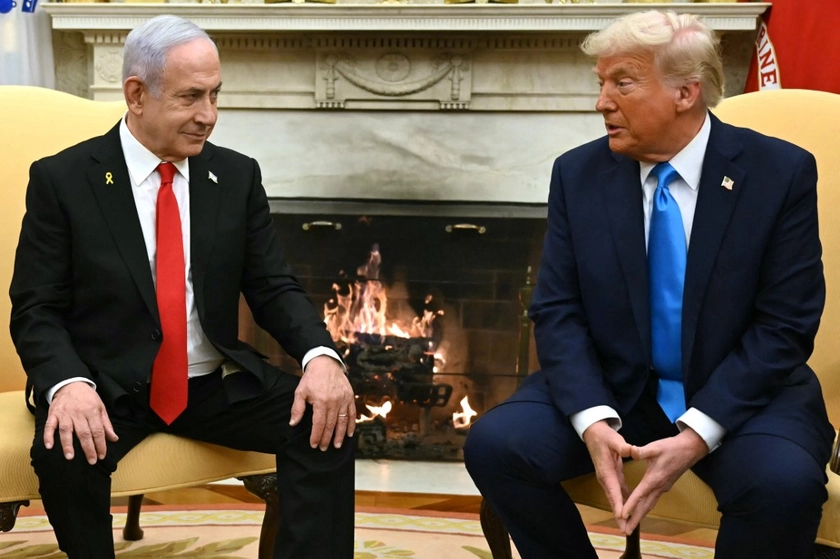President Volodymyr Zelensky presented Ukraine’s parliament, the Verkhovna Rada, with his plans for the country’s future on Tuesday, Nov. 19.
The “Internal Sustainability Plan” lays out Ukraine’s internal policy strategy during the ongoing war and for the post-war period.
JOIN US ON TELEGRAM
Follow our coverage of the war on the @Kyivpost_official.
Most of the provisions he presented were relatively general, but strategic – clearly aimed at the future.
As early as 2022, experts, civil servants, officials, and media professionals had begun raising questions: What is our strategy in the war? What are our priorities in industry, finance, security, and other sectors?
When the “Victory Plan” was announced, which focused entirely on Western allies, Kyiv Post asked someone in the President’s Office why there wasn’t a similar plan for internal purposes. While the expectations of Western allies were clear, what about Ukraine’s internal efforts? The response was that Ukrainians were already doing everything possible and that defeating Putin – supported by China, Iran, and North Korea – could only be achieved with the help of allies.
However, almost simultaneously, the President’s Office began developing the “Internal Plan” in response to public demand. Kyiv Post examined its contents and Ukrainians’ reactions.
Inside and Outside the Plan
The plan itself is multi-layered. Beyond its ten key points, it includes several important declarations:

Russia Presents Demands to US to End War: Capitulation
- Ukraine will not surrender any of its territories under any circumstances.
- 2025 will be a pivotal year for the war, determining which side will be more exhausted and capable of pressuring the other.
- Elections will not be held until peace is achieved, meaning no elections during the war.
- Russia must bear collective responsibility for the war, including reparations and the confiscation of its assets. This may signal a call to Western allies to utilize seized Russian assets more actively in supporting Ukraine.
The plan’s ten points address Ukraine’s priorities for strengthening its defense capabilities:
- Unity: Ukrainians must remain united and resist external disinformation and provocations.
- Military Issues: Openly addressing challenges in the army, such as mobilization and desertion. A military ombudsman position will be created, though its functions are not yet defined.
- Weapons: Ukraine plans to produce up to 30,000 attack drones and 3,000 cruise missiles next year. Military brigades will gain greater autonomy and access to technology and procurement opportunities. A new technological framework will support these developments.
- Economy: Businesses will experience reduced state interference, with efforts to deregulate and de-shadow the economy, ensuring fair relations between the government and the corporate sector.
- Energy: An energy passport will be introduced for each region, emphasizing decentralized energy systems.
- Security: Strengthened security in educational institutions and improved shelters.
- Local Authorities: Supporting frontline communities disproportionately affected by the war, including those hosting large numbers of displaced people.
- Human Capital: Considering multiple citizenship, reforming the diplomatic service, and establishing a Ministry for the Unification of Ukrainians to consolidate the diaspora.
- Cultural Sovereignty: Strengthening national cultural projects and promoting cooperation with foreign partners.
- Veterans: Addressing veterans’ integration, rehabilitation, and involvement in public service.
The points vary in specificity. For instance, the section on weapons includes clear targets for production, while points on improving the business climate remain more general, prompting questions from experts.
“Didn’t all of Zelensky’s predecessors promise this? Is this really a new state policy during wartime?” asked economist Olexandr Honcharov.
The plan’s comprehensiveness and scope have led some to speculate that it resembles an election program, despite Zelensky’s assertion that elections will not occur before the war ends.
“As a political strategist, I’d say this document resembles a well-crafted election program,” said political analyst Oleh Posternak. “However, Zelensky explicitly denied election rumors in his speech, reiterating that they will only occur after a just peace. The value of this document is that the government has finally provided a vision of the future, something society sorely needed. Yet, it lacks depth in key areas such as demographics, housing, and corruption.”
Preparing for a Long War
Military experts see the document as preparation for a prolonged conflict.
“Ukraine receives military, financial, and humanitarian aid, plus access to frozen Russian assets. The announcement of such ambitious plans suggests there are resources available. Clearly, Kyiv understands that the war isn’t ending soon and is preparing for the long haul,” said military analyst Yigal Levin.
Despite skepticism, many observers acknowledge the plan’s potential.
“The plan is good, but without accompanying bylaws, decrees, or laws, it’s unlikely to have lasting impact. Will it remain relevant in a few months?” questioned a source in Ukraine’s defense sector.
To implement this ambitious vision, Oleksiy Kucherenko, deputy chairman of the Verkhovna Rada Committee on Energy, said: “Ukraine needs a powerful coalition, strong institutions like the SBU and NABU, and a super-powerful president who ensures constitutional compliance by all.”
Common Ground with the Victory Plan
The “Internal Plan” shares some elements with the “Victory Plan,” such as:
- No compromise on Ukraine’s territorial integrity.
- NATO’s role in securing Ukraine’s future.
- Recognition that Russia will remain a threat even after Putin.
According to sources, reiterating these positions signals Ukraine’s steadfastness to Western allies, regardless of changes in international leadership, especially following the US elections.
“This reaffirms that Ukraine’s stance won’t change, no matter who becomes president in any country. It may also preemptively counter any potential suggestions of territorial concessions,” one source concluded.
You can also highlight the text and press Ctrl + Enter














